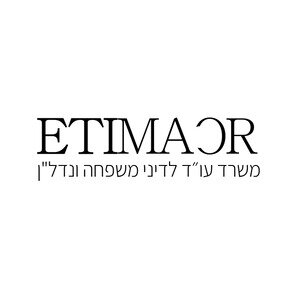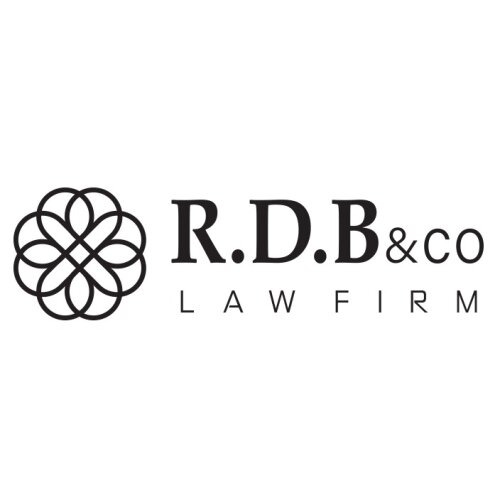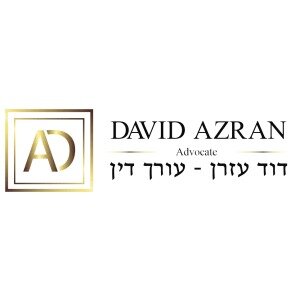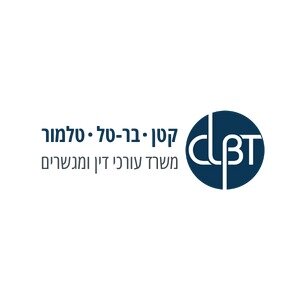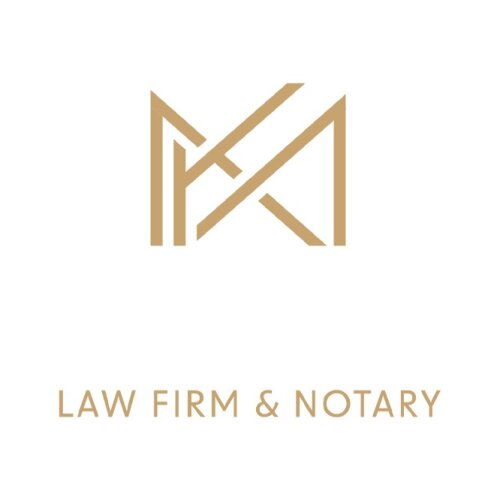Best Conveyancing Lawyers in Petaẖ Tiqwa
Share your needs with us, get contacted by law firms.
Free. Takes 2 min.
Free Guide to Hiring a Real Estate Lawyer
List of the best lawyers in Petaẖ Tiqwa, Israel
About Conveyancing Law in Petaẖ Tiqwa, Israel
Conveyancing is the legal process of transferring property ownership from one person to another. In Petaẖ Tiqwa, Israel, this field of law encompasses the sale, purchase, and leasing of residential, commercial, and agricultural real estate. The conveyancing process involves preparing and reviewing contracts, conducting due diligence, registering deeds, navigating municipal regulations, and ensuring all taxes and fees are paid accordingly. Petaẖ Tiqwa, as a major city within the Tel Aviv District, is subject to both national Israeli property laws and specific municipal requirements that affect conveyancing transactions.
Why You May Need a Lawyer
People frequently require legal assistance with conveyancing in Petaẖ Tiqwa due to the complexities involved in real estate transactions. Common situations where legal guidance is essential include:
- Buying or selling a home, apartment, or commercial space. - Drafting and negotiating sale or lease agreements. - Reviewing terms and conditions to avoid costly mistakes or fraud. - Handling registration of the property in the Israeli Land Registry (Tabu). - Verifying that the property is free of encumbrances, debts, or legal restrictions. - Managing the transfer of funds and ensuring proper tax payments. - Navigating issues with joint ownership, inheritance, or division of property. - Dealing with construction defects or boundary disputes. - Interpreting complex contracts and understanding rights and responsibilities. - Resolving disputes between buyers, sellers, landlords, and tenants.
A qualified conveyancing lawyer provides legal protection, upholds your interests, and ensures that all legal requirements are met throughout the process.
Local Laws Overview
Conveyancing in Petaẖ Tiqwa is regulated by a combination of Israeli national laws and local municipal regulations. Key national laws relevant to conveyancing include the Land Law (1969), the Sale Law (1968), and various tax-related regulations. Locally, the municipality of Petaẖ Tiqwa may impose zoning rules, urban development plans, and municipal taxes.
Some important legal aspects to consider include:
- The property must be registered in the Land Registry (Tabu) to validate full ownership. - Foreign nationals face certain restrictions and must often obtain approval from the Israel Land Authority. - All transactions must be conducted in writing, and contracts are only valid with signatures from all parties involved. - The process typically requires obtaining various certificates, including confirmation of municipal tax payments and clearance for water and electrical debts. - Transfer taxes such as Purchase Tax (Mas Rechisha) and Betterment Tax (Mas Shevach) may apply. - Misrepresentation or failure to disclose material facts can lead to severe legal liability. - Transactions involving agricultural, public, or protected lands have unique procedures and additional requirements.
Frequently Asked Questions
What is conveyancing?
Conveyancing is the legal transfer of property ownership from a seller to a buyer. It ensures all legal, regulatory, and financial obligations are met in the transaction.
Why is a lawyer necessary for property transactions in Petaẖ Tiqwa?
A lawyer helps protect your legal interests, manages the complex paperwork, conducts due diligence, prevents fraud, and negotiates on your behalf.
What documents are needed for conveyancing in Petaẖ Tiqwa?
Typical documents include identification, property registration extract (nesach tabu), certificates for municipal and utility debts, sale agreement, and proof of tax payments.
What is the Land Registry (Tabu)?
The Land Registry or Tabu is a governmental office that records property rights, such as ownership and encumbrances, and is essential for validating real estate transactions.
How long does the conveyancing process take?
The process can take from several weeks to several months, depending on the complexity of the transaction, financing arrangements, and municipal approvals.
What taxes apply when buying property in Petaẖ Tiqwa?
The primary taxes are Purchase Tax (Mas Rechisha) for buyers and Betterment Tax (Mas Shevach) for sellers. Additional fees may include municipal charges and legal fees.
Can foreign nationals buy property in Petaẖ Tiqwa?
Yes, but certain restrictions apply, especially regarding land administered by the Israel Land Authority. Legal advice is strongly recommended in these situations.
What are common risks in property transactions?
Risks include undisclosed debts or liens, zoning violations, lack of proper registration, and failure to comply with municipal regulations.
How do I check if a property is free of debts or legal claims?
Your lawyer will request an updated extract from the Land Registry and obtain municipal and utility certificates to confirm there are no existing debts or encumbrances.
What happens if there is a dispute during conveyancing?
Disputes may be resolved through negotiation, mediation, or legal proceedings. Engaging a lawyer early helps minimize disputes and ensures they are handled efficiently if they arise.
Additional Resources
For further information and support regarding conveyancing in Petaẖ Tiqwa, consider the following:
- Israeli Ministry of Justice - Land Registry Office (Tabu). - Israel Land Authority for issues involving state land. - Petaẖ Tiqwa Municipality for municipal regulations, zoning, and tax information. - Israeli Bar Association for finding qualified property lawyers. - Consumer Protection Authority regarding buyers' and sellers' rights. - Local real estate agents and appraisers experienced in Petaẖ Tiqwa.
Next Steps
If you require legal assistance with conveyancing in Petaẖ Tiqwa, consider the following steps:
1. Gather all available documents related to your property. 2. Identify your goals and any concerns regarding the transaction. 3. Consult with a qualified real estate lawyer familiar with Petaẖ Tiqwa and Israeli property law. 4. Discuss the transaction process, costs, and timeline with your lawyer. 5. Complete all legal and municipal paperwork as advised. 6. Stay informed and ask your lawyer questions throughout the process. 7. Do not sign any agreements until they are reviewed by a legal professional.
Taking these steps will help ensure a secure and smooth conveyancing experience in Petaẖ Tiqwa.
Lawzana helps you find the best lawyers and law firms in Petaẖ Tiqwa through a curated and pre-screened list of qualified legal professionals. Our platform offers rankings and detailed profiles of attorneys and law firms, allowing you to compare based on practice areas, including Conveyancing, experience, and client feedback.
Each profile includes a description of the firm's areas of practice, client reviews, team members and partners, year of establishment, spoken languages, office locations, contact information, social media presence, and any published articles or resources. Most firms on our platform speak English and are experienced in both local and international legal matters.
Get a quote from top-rated law firms in Petaẖ Tiqwa, Israel — quickly, securely, and without unnecessary hassle.
Disclaimer:
The information provided on this page is for general informational purposes only and does not constitute legal advice. While we strive to ensure the accuracy and relevance of the content, legal information may change over time, and interpretations of the law can vary. You should always consult with a qualified legal professional for advice specific to your situation.
We disclaim all liability for actions taken or not taken based on the content of this page. If you believe any information is incorrect or outdated, please contact us, and we will review and update it where appropriate.



